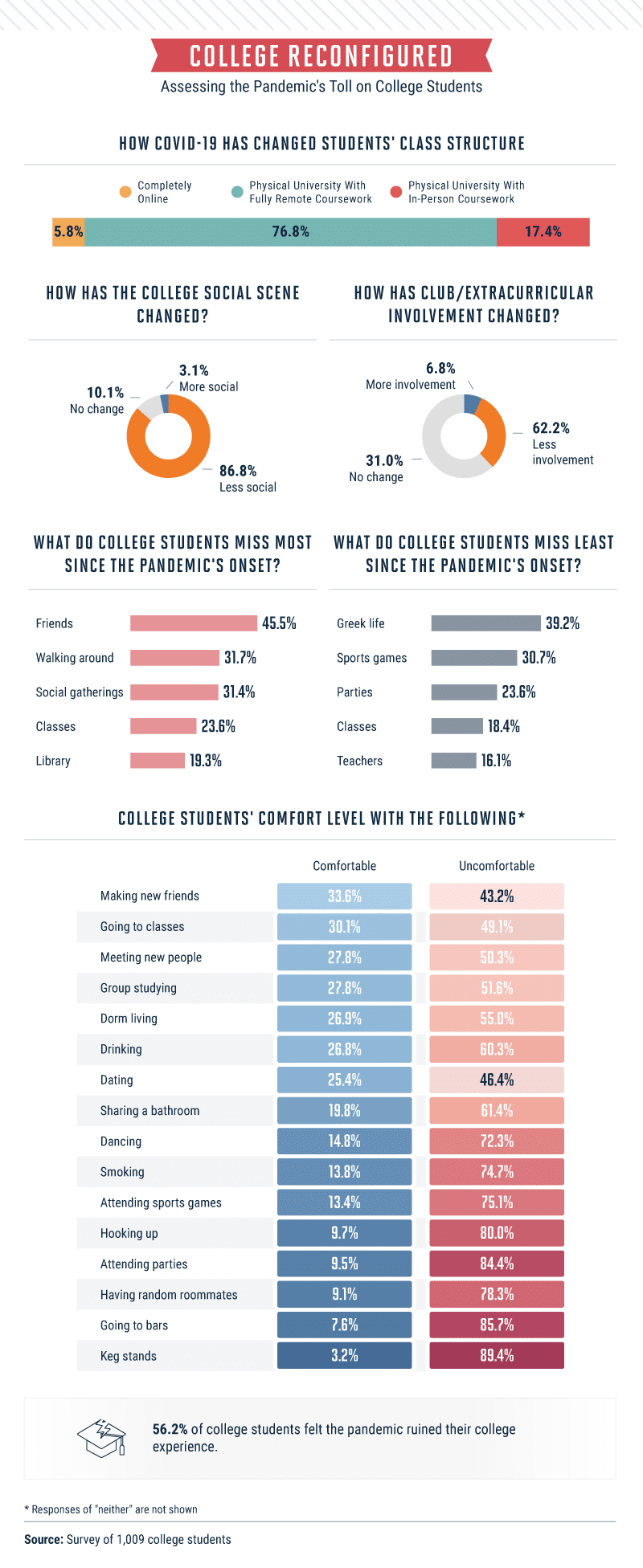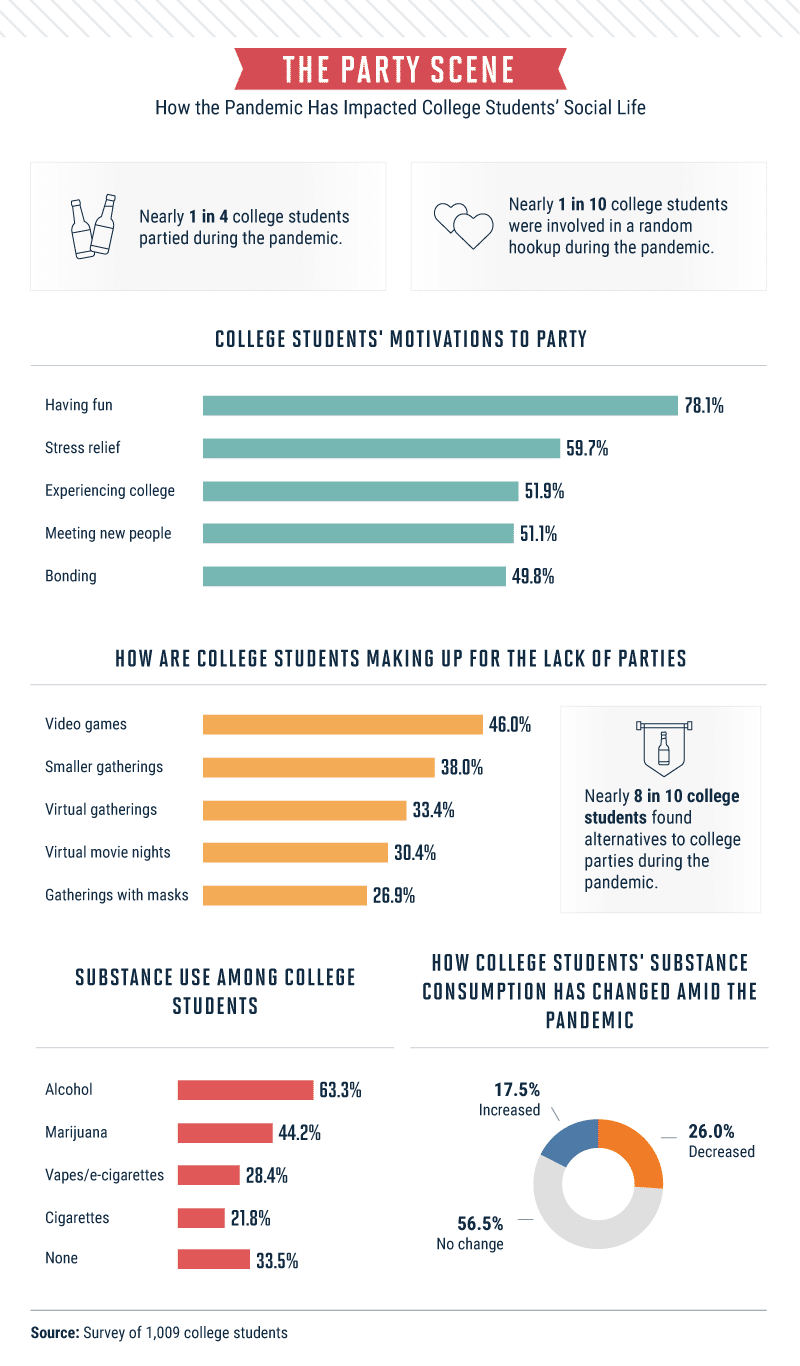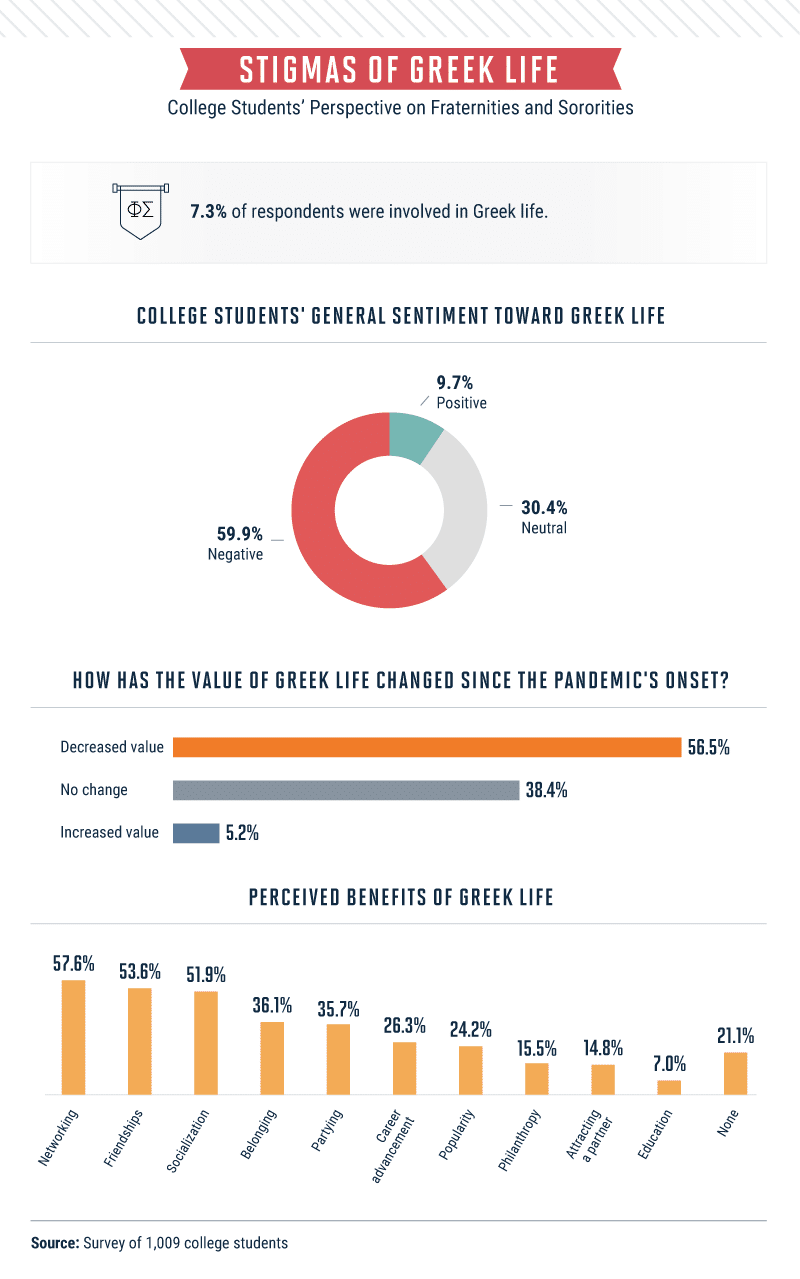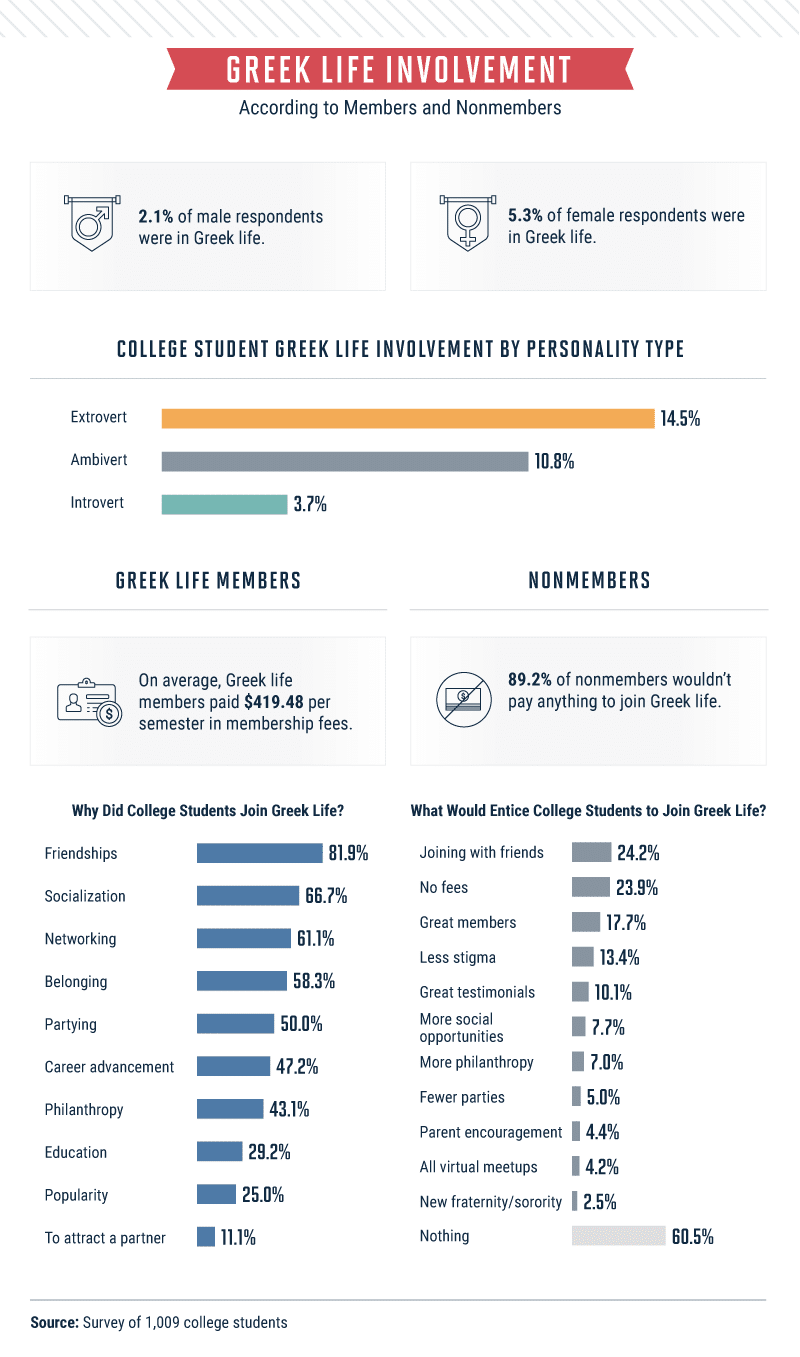
Returning to Campus
Dry eyes, headaches, inability to concentrate, social isolation, and slipping grades may sound like the small print on the side of an antibiotic. But in the coronavirus world, these side effects are largely due to the evolving approach to education. Staring at the computer screen all day, attempting to follow along through technological difficulties, and coping without post-class conversations between classmates has left a deeper impact on college students than just an uncomfortable learning curve.
As COVID-19 vaccines begin to roll out and college campuses open their doors again, how will college life change post-pandemic? Will returning students be comfortable learning in close quarters with strangers or attending sporting events to cheer on their team elbow to elbow among peers? How will Greek life and college parties change, and how do students feel about it? To find out, we surveyed over 1,000 college students. Read on to see what they said.
Post-Covid Classrooms

When COVID-19 shut down businesses and restaurants in the spring of 2020, college campuses were also forced to send students home. Almost a year later, nearly 77% of college students remained remote as the pandemic raged on, while roughly 17% were still completing in-person coursework. As a result of turning to a digital world and recommendations from the Centers for Disease Control and Prevention, a whopping 86.8% of students reported a less social college scene, while 62.2% said college club and extracurricular participation had also decreased.
Despite social gatherings being a significant part of the college experience, parties weren’t the aspect missed most among students. In fact, 45.4% said they simply missed their friends, while 31.7% said they missed walking around. In comparison, only 31.4% missed social gatherings – beating classes (23.6%) and the library (19.3%). Nevertheless, Greek life was the least missed college aspect since the pandemic’s onset. Sports games, parties, classes, and teachers were also among the factors students missed the least.
As students return to campus, the effect of the pandemic is likely to follow. Rather than returning with excitement and a clean slate, more students reported being uncomfortable than comfortable with every college-related activity, including making new friends. While making friends, attending classes, and meeting new people were the least uncomfortable aspects students cited, having random roommates, going to bars, and keg stands were deemed the most uncomfortable. Ultimately, 56.2% of college students agreed the pandemic ruined their college experience.
Partying the Pandemic Away

College students as a whole may be more cautious when returning to campus, but that doesn’t mean they took the same precautions during their time at home. With “COVID-19 parties” making headlines in July of 2020, it’s no surprise 1 in 4 college students reported partying during the pandemic. One in 10 also admitted to being involved in a random hookup during the pandemic. While there are very few valid excuses to break social distancing rules, nearly 78% of students said their main motivation to party was simply to have fun. Stress relief, experiencing college, and meeting new people were also popular motivations.
For those who chose to ignore the urge to party, video games were the primary replacement. A significant percentage of college students also attended small gatherings, got together virtually, and hosted virtual movie nights to make up for missing college parties during the pandemic. Even without in-person parties, 56.5% of college students kept up their substance consumption during the pandemic, with alcohol being the most popular consumable.
Looking Down on Greek Life

Everyone has heard about the ugly side of Greek life: binge drinking, hazing, and long-term substance abuse are often thought of as an inherent part of joining a fraternity or sorority. Even for students surrounded by Greek life, the overwhelming sentiment is negative. While just 9.7% viewed Greek life positively, 30.4% were neutral, and 59.9% held unfavorable views. Since the pandemic, negative sentiments have only increased: Over 56% of college students said the value of Greek life had diminished since COVID-19’s onset, compared to just 5.2% valuing Greek life more than before.
Focusing on the positive aspects, more than half of respondents acknowledged the value of Greek life in terms of networking, friendships, and socialization. A sense of belonging, partying, and career advancement were also noteworthy benefits cited by college students.
Who’s Involved?

Negative sentiments and stigmas aside, there are 123 fraternities and sororities with over 9 million Greek members nationally. However, among our respondents, only 2.1% of male college students reported involvement in Greek life, while 5.3% of female college students said the same. Looking into their similarities, Greek life students were mainly extroverted, with only 3.7% identifying as introverts.
Personality is only one factor of joining Greek life, though. It also comes at a cost. On average, Greek life members paid $419.48 per semester in membership fees alone – a price high enough to be a dealbreaker for 89.2% of nonmembers. For those who did join Greek life, the friendships, socialization, and networking offered by fraternities and sororities was felt to be well worth the price. Regardless of the reasons Greek life members had for joining, 60.5% of college students said nothing could entice them to join their ranks.
Navigating College Post-Pandemic
At this point in the health crisis, COVID-19’s impact is seen in everyday life. From empty grocery store shelves to endless hours in front of the computer screen, the pandemic has impacted every aspect of our life – and college campuses are no exception. With students sent home almost a year ago, the idea of returning to campus should be one of excitement. However, students are looking forward with apprehension, uncomfortable with the once normal aspects of the college experience. Rooming with randoms, attending parties, and making friends have gone from no-brainers to no-thank-yous. And these negative sentiments don’t show signs of letting up anytime soon.
Navigating college life post-pandemic won’t be easy for everyone. Whether the struggle lies in college experience, finances, or value, BestValueSchools.org is here to help. Browse our articles for the latest information on college planning, the best value schools by program and tuition, and maintaining good health throughout the college experience. Find information on everything college-related by visiting us online today.
Methodology and Limitations
We collected responses from 1,009 college students using Prolific. Of the 1,009 students surveyed, 56% were female, 41.9% were male, and 2.1% identified as nonbinary. Additionally, the average age of respondents was 22.2 with a standard deviation of 4.8 years.
The main limitation of this study is the reliance on self-report, which is faced with several issues such as, but not limited to, attribution, exaggeration, recency bias, and telescoping. Data are solely representative of self-reported claims by college students. This survey ran during December 2020.
Fair Use Statement
Many college students may not be excited about returning to campus post-pandemic, so feel free to let them know they’re not alone by sharing this project for noncommercial purposes. All we ask is that you include a link back to this page so our contributors receive proper credit.

